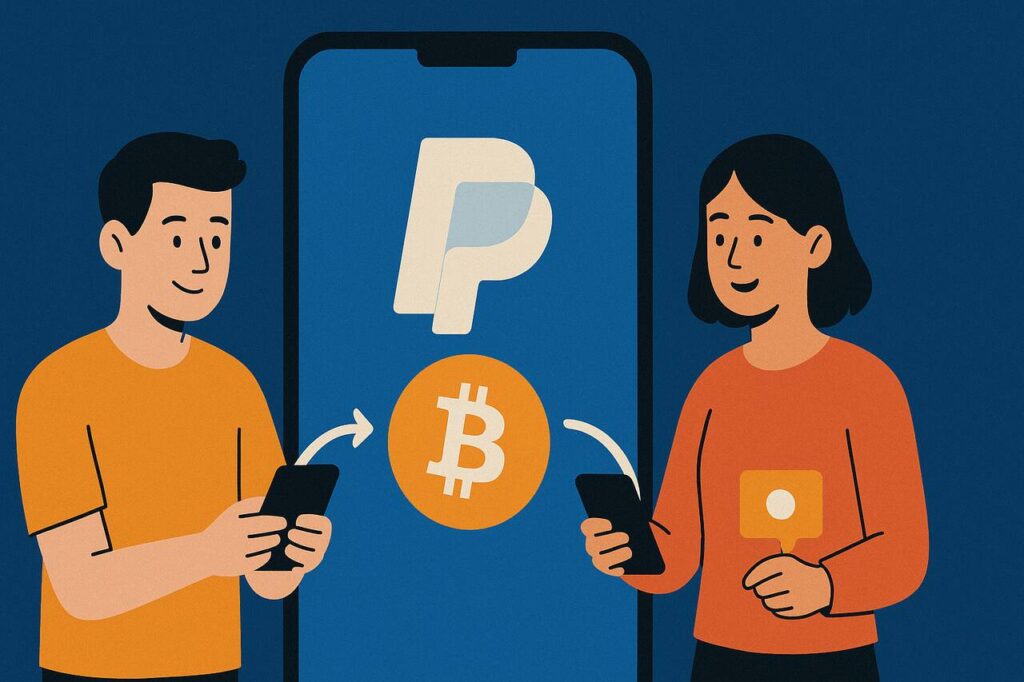PayPal has taken another major step into the world of digital assets by expanding its peer-to-peer payment service to include cryptocurrency transfers. The company confirmed the update on September 15, announcing that users in the United States can now send Bitcoin, Ethereum, PYUSD, and other supported tokens directly through its app.
This expansion is part of PayPal’s rollout of PayPal Links, a new feature designed to make sending or requesting money as easy as sharing a personalized link. The tool works similarly to PayPal Me but offers more flexibility, functioning as a one-time payment link that can be shared across chats, social platforms, or email. With crypto now integrated into the P2P flow, users can move digital assets to PayPal, Venmo, or any compatible third-party crypto wallet worldwide.
PayPal stated that customers in the UK, Italy, and other global markets will gain access to these features later in the month.
How PayPal Links Work
The new process is intentionally simple. Users tap the Send/Request button in the app, choose “Send and request money with a link,” and enter the specific amount. After reviewing the details, they select “Create PayPal Link” and share it with the recipient.
Requesting money follows the same steps: enter the amount, generate the link, and send it to the other party.
To ease concerns about tax reporting, PayPal clarified that payments between friends and family through Venmo or PayPal are not subject to 1099-K reporting. According to the company, this ensures gifts, reimbursements, and everyday personal transfers remain private.
Growing Demand for Peer-to-Peer Payments
The popularity of P2P apps continues to surge, particularly among users aged 18 to 41. A recent Pymnts market report found that younger consumers rely heavily on these apps to handle both online and offline spending.
Besides PayPal, leading P2P services in the United States include Zelle, Venmo, Cash App, and Apple Cash, according to NerdWallet’s April 18 analysis.
However, the convenience of digital payments has also fueled a rise in scams.
Popular P2P Scams to Watch Out For
Two common tactics target users of P2P payment apps:
-
Fake Bank Authorization Messages
Scammers send a text pretending to be from a bank, asking to confirm a payment. When the victim replies “no,” the scammers follow up with a phone call, claiming an account breach and requesting sensitive information that allows them to access the victim’s P2P account. -
Refund Scam via Overpayment
Fraudsters send a “mistaken” payment using a stolen credit card and ask the recipient for a refund. If the user refunds the amount, they end up losing their own money when the original transaction gets reversed.
Authorities encourage victims to report such incidents to the Federal Trade Commission (FTC) or the Internet Crime Complaint Center (IC3).
Crypto Crimes Continue to Surge in 2025
The integration of crypto into mainstream payments comes at a time when digital-asset scams and theft are breaking records. According to Kroll Cyber Threat Intelligence, nearly $1.93 billion was stolen in crypto-related crimes during just the first six months of 2025 — surpassing the total for all of 2024.
Crypto adoption in the U.S. also continues to grow. Security.org estimates that around 65 million Americans — roughly 28% of the population — now own some form of cryptocurrency. Notably, 67% of current crypto holders say they plan to increase their holdings this year, with Bitcoin, Ethereum, and Dogecoin ranked as the most popular choices.
Read Also:
S&P 500, Nasdaq, and Dow React to U.S. Tariffs, Crypto Surge, and Global Market Shifts

